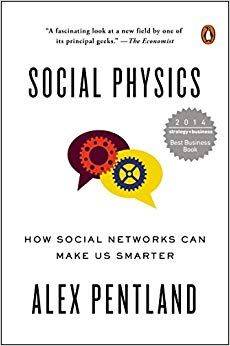
Download Social Physics: How Social Networks Can Make Us Smarter PDF EPUB
Author: Author
Pages: 320
Size: 3.108,34 Kb
Publication Date: January 27,2015
Category: Social Theory
In one of the globe’s leading data researchers, a landmark tour of the brand new technology of idea stream, offering revolutionary insights in to the mysteries of collective cleverness and social impact
If the Big Data revolution includes a presiding genius, it really is MIT’s Alex “Sandy” Pentland. More than years of groundbreaking experiments, he has distilled amazing discoveries significant more than enough to be the bedrock of a complete new scientific field: sociable physics. Humans have significantly more in keeping with bees than we prefer to admit: We’re cultural creatures 1st and foremost. Our most significant habits of action—& most fundamental notions of common feeling—are wired into us through our coordination in sociable groups. Sociable physics is approximately idea stream , just how human internet sites spread tips and transform those tips into behaviors. As yet, sociologists possess depended on limited data pieces and surveys that reveal how people state they believe and behave, instead of what they in fact perform .
Because of the an incredible number of digital loaf of bread crumbs people keep behind via smartphones, GPS products, and the Internet, the quantity of new information we’ve about individual activity is actually profound. Because of this, we’ve been trapped with the same stale cultural structures—classes, marketplaces—and a concentrate on specific actors, data snapshots, and steady states. We are able to increase a group’s collective intelligence to boost performance and use public incentives to create fresh organizations and information them through disruptive transformation in a manner that maximizes the nice. At every degree of interaction, from little groups to large metropolitan areas, social networks can become tuned to improve exploration and engagement, therefore vastly improving idea circulation. Pentland shows that, actually, humans respond a lot more powerfully to public incentives that involve satisfying others and strengthening the ties that bind than incentives that involve just their own financial self-curiosity.
Pentland and his groups have found that they are able to research patterns of details exchange in a social networking without any understanding of the real content material of the info and predict with spectacular accuracy how effective and effective that network is normally, whether it’s a business or a whole town.�
Public Physics changes the way we consider how exactly we learn and how our sociable groups work—and may be made to are better, at every degree of culture. Pentland leads visitors to the advantage of the most essential revolution in the analysis of cultural behavior in a era, a completely new way to check out life itself.